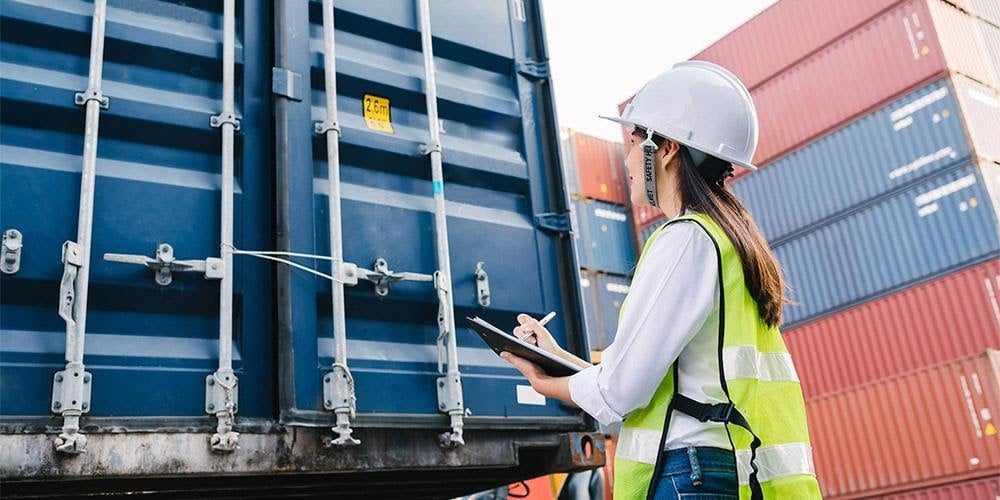.jpg)
The logistics sector is very broad and goes from the local to the international level. This industry is characterized by using very specific terms depending on the area or activity, so handling these terms is essential when conducting exports and imports. Foreign trade, for example, relies on incoterms, about which you can find out more here.
What are incoterms?
They’re a type of code in logistics and international trade and are made up of three letters. Their main goal is to facilitate commercial relations among countries which is why they’re internationally valid and recognized.
It is worth noting that Incoterms® rules are published and updated every 10 years by the International Chamber of Commerce since 1936. Their latest version is Incoterms 2020 and they can be employed to interpret commercial terms in purchase-sale agreements between importers and exporters to avoid misunderstandings between the parties involved.
How are incoterms classified?
Nowadays, we can find 11 types of incoterms grouped in 4 different variations:
1. Group E – EXW - Ex Works
They show that the seller or exporter will deliver the goods at his own warehouse, being responsible for doing the packaging, while the purchaser is in charge of the transportation.
The importer or exporter will have to find a logistics agent if they wish to prevent any risks in the transportation of goods since, once these are out of the warehouse all responsibility for the cargo lies on the purchaser.
2. Group F - FCA, FAS and FOB
- FCA - Free Carrier: one of the rules in international logistics is setting out it is the seller’s responsibility to make the delivery of the goods to the purchasing party at a previously agreed location. In this case, the costs and risks associated upon delivery are incurred by the selling party, from the moment they leave the warehouse all the way through customs clearance. The purchaser must incur the expenses along the on-board loading and unloading process. The amendment made in incoterms 2020 allows the purchasing party to request the seller to issue a bill of lading (BL) containing the On Board term to facilitate payment transactions of documentary credits.
- FAS - Free Alongside Ship: it is used in sea freight for merchandise with special dimensions. The seller is in charge of the customs and delivery formalities made at the port of origin on the loading dock and alongside the ship. The buyer accepts the related risks from the moment goods are at the dock and once they’re taken aboard the ship.
- FOB - Free on Board: the seller must be in charge of the logistics and international trade process and as well as the relevant clearance and compliance steps until the goods are aboard the transport. The buyer pays for the freight, the documentation related to the import and the matters associated with unloading the cargo at its destination. It is only used for imports and exports made by sea.
3. Group C - CPT, CIP, CFR and CIF
- CPT - Carriage Paid to: it means freight until the agreed destination is paid for by the seller. The buyer has to do the import paperwork. When goods are loaded on the first transport the risk is transferred to the buyer, which makes purchasing an insurance policy for the goods a rule of thumb.
- CIP - Carriage and Insurance Paid to: both transport and insurance are already included by the seller until the destination agreed. In the new version of these rules, insurance is mandatory.
- CFR - Cost and Freight: it is used in sea freight and includes the cost and freight to an agreed destination port.
- CIF - Cost, Insurance and Freight: same as CFR, it is used for loading goods on ships. Besides the transport to an agreed destination port, insurance must be hired by all means.
4. Group D - DAT, DAP and DDP
- DAT - Delivered at Terminal or DPU – Delivered at Place Unloaded: with the amendment of 2020, the abbreviation changed to DPU. Before the change, goods had to be delivered on the border or customs terminal, but now this can be made at an agreed location. The buyer only has to go through the clearance of goods.
- DAP - Delivered at Place: the goods must be delivered on a ship or means of transport being used, and the buyer has to unload them and deal with all the different formalities related to the import at the destination.
- DDP - Delivered Duty Paid: the seller is in charge everything related to handling the goods, even the paperwork connected with the export and import of international logistics.
Now that you know the importance and the different types of incoterms, start moving your products and take your business to the next level. At Akzent, we are committed to assist you in every step of the import/export process of your goods. Akzent, connecting every move.
Related











